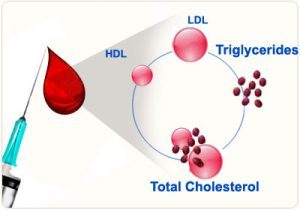- Home
- Editorial
- News
- Practice Guidelines
- Anesthesiology Guidelines
- Cancer Guidelines
- Cardiac Sciences Guidelines
- Critical Care Guidelines
- Dentistry Guidelines
- Dermatology Guidelines
- Diabetes and Endo Guidelines
- Diagnostics Guidelines
- ENT Guidelines
- Featured Practice Guidelines
- Gastroenterology Guidelines
- Geriatrics Guidelines
- Medicine Guidelines
- Nephrology Guidelines
- Neurosciences Guidelines
- Obs and Gynae Guidelines
- Ophthalmology Guidelines
- Orthopaedics Guidelines
- Paediatrics Guidelines
- Psychiatry Guidelines
- Pulmonology Guidelines
- Radiology Guidelines
- Surgery Guidelines
- Urology Guidelines
Fasting is not routinely required for lipid profile :Expert Consensus statement

Traditionally it is practised that a lipid profile obtained only after 12 hrs fasting and the random lipid profile may not be reflective of daily average plasma lipid and lipoprotein concentrations and their associated risk.
On the scale of evidence there is a lack of evidence indicating that fasting lipid profiles are superior to non-fasting when evaluating cardiovascular risk. As such, several societies and guideline committees have endorsed non-fasting lipid testing.
At the joint consensus statement, representing the European Atherosclerosis Society and European Federation of Clinical Chemistry and Laboratory Medicine offered a critical evaluation of the use of non-fasting lipid tests, and provide guidance for the laboratory reporting of abnormal non-fasting or fasting lipid profiles.
Extensive observational data, including data from Denmark where non-fasting lipid testing was first recommended in 2009, indicate that the maximal mean changes at 1-6 h after habitual meals are not clinically significant for triglycerides, total cholesterol and LDL cholesterol. For concentrations of HDL cholesterol, apolipoprotein A1, apolipoprotein B, and lipoprotein(a), fasting status does not affect the values.
The authors made 4 key recommendations:
1) Fasting is not routinely required for assessing lipids;
2) When non-fasting triglycerides are >5 mmol/L (440 mg/dL), consider repeating the test in the fasting state;
3) Laboratories should flag abnormal values based on desirable concentration cut-points; and
4) Life-threatening concentrations should trigger an immediate referral to a lipid clinic or lipid specialist—for the risk of pancreatitis when triglycerides are >10 mmol/L (880 mg/dL), for homozygous familial hypercholesterolemia when LDL cholesterol is >13 mmol/L (500 mg/dL), for heterozygous familial hypercholesterolemia when LDL cholesterol is >5 mmol/L (190 mg/dL), and for very high cardiovascular risk when lipoprotein(a) >150 mg/dL (99th percentile).
The expert consensus group of the European Atherosclerosis Society and European Federation of Clinical Chemistry and Laboratory Medicine concluded with a recommendation that non-fasting blood samples be routinely used for the assessment of plasma lipids, with limited but important caveats.
Laboratory reports should flag abnormal values based on cut-offs, defined by guidelines and consensus statements, while life-threatening values should trigger immediate action.
You can read the full article by clicking on the following link :
Nordestgaard BG, Langsted A, Mora S, et al (Langlois M, senior author). Fasting is not routinely required for determination of a lipid profile: clinical and laboratory implications including flagging at desirable concentration cut-points-a joint consensus statement from the European Atherosclerosis Society and European Federation of Clinical Chemistry and Laboratory Medicine. Eur Heart J. 2016; April 26.
Dr Prem Aggarwal, (MD, DNB Medicine, DNB Cardiology) is a Cardiologist by profession and also the Co-founder of Medical Dialogues. He is the Chairman of Sanjeevan Hospital in Central Delhi and also serving as the member of Delhi Medical Council

Disclaimer: This site is primarily intended for healthcare professionals. Any content/information on this website does not replace the advice of medical and/or health professionals and should not be construed as medical/diagnostic advice/endorsement or prescription. Use of this site is subject to our terms of use, privacy policy, advertisement policy. © 2020 Minerva Medical Treatment Pvt Ltd